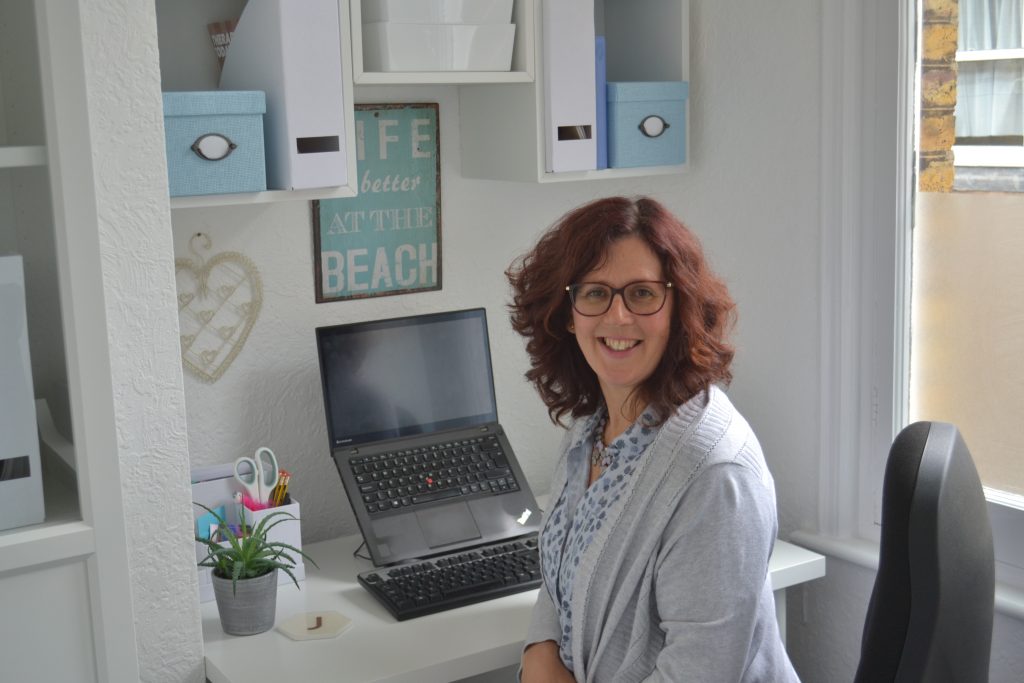The thought of self-disclosure in marketing can bring therapists out in hives.
Counsellors and psychotherapists are told to behave like a “blank slate”: to avoid revealing anything personal about themselves.
But, is it time to smash the blank slate?
One of basics that we’re taught in training is not to self-disclose. We’re taught to listen and not to share our own experience. It’s about the client, not about us.
And of course, it’s very important that our client is at the centre of therapy. They’re not there to listen to us. They’re not there to comfort us in our own process. They’re not there to be our friends.
As professionals we want to make the space for our clients to share. We don’t want our own concerns and troubles to get in the way or be a distraction.
However, have we taken that too far when we use it as a reason not to create connections with potential clients when we’re marketing?
Are we excessively frightened about self-disclosure?
And how does that affect our relationships with our potential clients when we’re marketing?
Why Use Self-Disclosure in Marketing?
Marketing is all about helping people to make a decision about the service they’re looking for. For therapy, it’s about potential clients believing they’ll be able to talk to the therapist they choose.
They want to feel safe and that the therapist will be able to help them.
Self-disclosure is a way of building what is called the “know, like and trust” factor in making a decision.
The Power of Trust
People trust people. If they can see you as a real person they’re much more likely to trust you.
And if they trust you, they’re going to feel a whole lot safer telling you their stories.
Who would you like to tell your story to?
Someone who projects an aura of perfection, or someone who is messily human?
What would make you feel less alone?
Someone who looks down from above, or someone you know who has experienced something of what you feel?
When therapists share something of themselves:
- they’re helping clients to see they are not alone in their experience
- they’re building a rapport that makes it easier for the client to share
- they’re addressing a power dynamic where the therapist is seen as all-knowing and all-powerful
You’re Unique
Why should anyone pick you? What is going to make you stand out from every other therapist who is advertising their services? What makes you different?
You. No one else is you. No one else has your experience or your way of looking at the world.
And you can communicate that with your humanity and willingness to share something of your life.
“Leverage the strength that you have: that no one else can be you” – Todd Wheatland
Engagement
People are interested in people.
They’ll spend more time on your personal stories than on other posts. They’re also much more likely to share your stories meaning that you’ll be able to reach more people.
When they see a photo of you, such as the one below, they’ll be more likely to connect with you and want to read on.

Photo by Timothy Hughes
How Can Therapists Manage Self-Disclosure?
Decide What to Self-Disclose
It’s hard to be vulnerable, and using self-disclosure on social media exposes vulnerability.
It’s personal
It’s not easy to share our thoughts and feelings in public. After all, that is why confidential therapy exists! So it’s helpful to consider the limits of what you want to share.
These considerations could include:
- The purpose of the self-disclosure. Is it to serve potential clients by creating a trustworthy relationship?
- The length of the healing journey you have taken. A fresh situation may still need lot of processing so do you need to handle it with care?
- Whose story is it? If it concerns family or friends, is it your story to tell?
You Fear Criticism from Other Professionals
This is why it is important for you to know your reasons for your self-disclosure – and this might be something you’d like to explore in supervision.
If your self-disclosure is planned to serve your potential clients you do not need to justify yourself to other professionals.
Distinguish Between the Personal and the Professional
Make the distinction between what self-disclosure you are prepared to make for:
- professional purposes (to build relationships with potential clients)
- peer support
- personal friendships
This means being able to distinguish between what is public, private and protected accounts.
Examples would be:
Public
Your Facebook or Instagram business pages, your twitter feed
Private
A “friends only” setting on your personal Facebook profile, a private Instagram account
Protected
A private Facebook group for therapists where content can only be seen by other members
You can read more about this in my previous blog on What Can Therapists Say on Social Media?

Photo by Josephine Hughes
Negative Effects of Self-Disclosure on the Therapeutic Relationship
What if a client reads something you have said publicly? What if it negatively affects the relationship?
Contract For It
It’s helpful to include this possibility in your initial contracting with the client.
You may wish to acknowledge that if they have read your posts, they may have opinions about who you are and what they can share.
Reassure them that therapy is for them and that you have shared your story in order to connect with clients. You have support in place and they do not need to look after you.
Be Mindful
Be mindful that your story may have had an impact and watch for any signs that it is coming into the therapeutic space. This helpful blog expands on what to do if this occurs: The Impact of Internet Self-Disclosure on the Counselling Relationship
Marketing for Therapists
It’s important to remember the purpose of marketing. What’s it all about?
First and foremost, it is about helping people.
It’s about helping them to find the therapist they can talk to and who will help them.
Self-disclosure can be a useful tool in that decision making process. Having an idea about what someone is like will help potential clients to decide whether they want to contact them.
It may help to de-mystify therapy and make it a whole lot easier for someone to make that first move.
It could make a real difference to their lives.
Looking for more support?
Josephine seeks to help therapists by providing them with a supportive online community. This is both via her free Facebook group – Good Enough Counsellors – and her paid membership group called The Therapy Growth Group. The Therapy Growth Group provides fortnightly coaching and networking sessions together with daily support via Facebook.
Join The Therapy Growth Group
The information contained above is provided for information purposes only. The contents of this article are not intended to amount to advice and you should not rely on any of the contents of this article. Professional advice should be obtained before taking or refraining from taking any action as a result of the contents of this article. Josephine disclaims all liability and responsibility arising from any reliance placed on any of the contents of this article.

